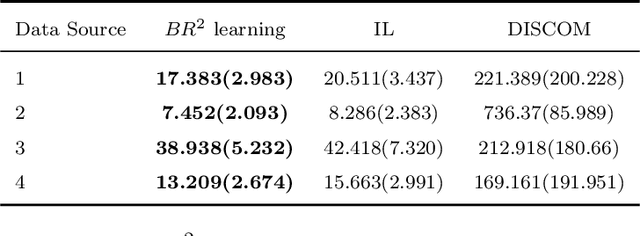Representation Retrieval Learning for Heterogeneous Data Integration
Paper and Code
Mar 13, 2025



In the era of big data, large-scale, multi-modal datasets are increasingly ubiquitous, offering unprecedented opportunities for predictive modeling and scientific discovery. However, these datasets often exhibit complex heterogeneity, such as covariate shift, posterior drift, and missing modalities, that can hinder the accuracy of existing prediction algorithms. To address these challenges, we propose a novel Representation Retrieval ($R^2$) framework, which integrates a representation learning module (the representer) with a sparsity-induced machine learning model (the learner). Moreover, we introduce the notion of "integrativeness" for representers, characterized by the effective data sources used in learning representers, and propose a Selective Integration Penalty (SIP) to explicitly improve the property. Theoretically, we demonstrate that the $R^2$ framework relaxes the conventional full-sharing assumption in multi-task learning, allowing for partially shared structures, and that SIP can improve the convergence rate of the excess risk bound. Extensive simulation studies validate the empirical performance of our framework, and applications to two real-world datasets further confirm its superiority over existing approaches.
 Add to Chrome
Add to Chrome Add to Firefox
Add to Firefox Add to Edge
Add to Edge